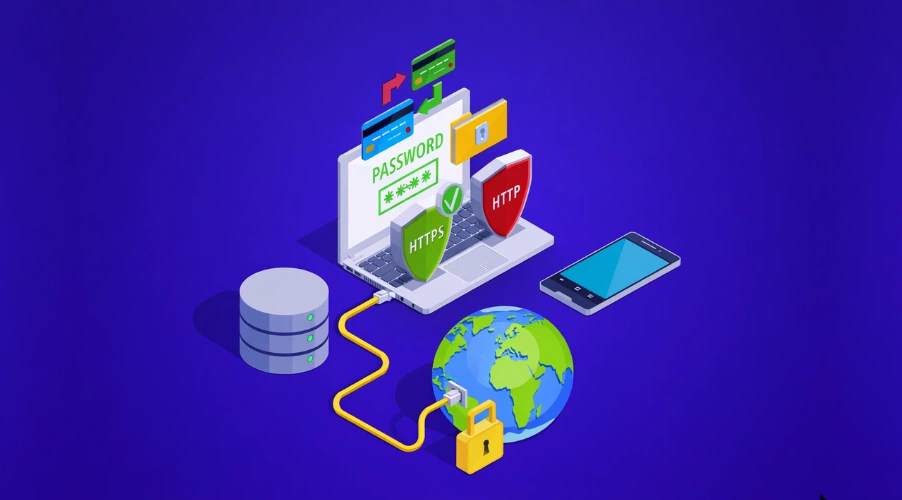✓
Key Takeaways
- 1Smart contracts automate real estate transactions by eliminating intermediaries, reducing closing times from 30-45 days to just 10 minutes in some cases.
- 2Blockchain-based property transactions can reduce costs by 2-3% of property value by removing title insurance, escrow fees, and broker commissions.
- 3Automated escrow through smart contracts holds funds securely and releases them instantly when all conditions are verified on-chain.
- 4Property title transfers become tamper-proof and instantly verifiable, eliminating title fraud that costs the industry $1 billion annually.
- 5Countries like Sweden, Georgia, and Dubai have already implemented blockchain land registries, proving real-world viability at scale.
Introduction to Smart Contracts in Real Estate
The real estate industry stands at a turning point. After eight years of building blockchain solutions for property transactions, our team has witnessed how smart contracts automate real estate processes that once required weeks of paperwork and multiple intermediaries. Today, what took 45 days and thousands in fees can happen in minutes with complete transparency.
Smart contracts are self-executing programs stored on blockchain networks that automatically enforce agreements when predefined conditions are met. In real estate, these digital agreements handle everything from earnest money deposits to final title transfers without human intervention. The code becomes the contract, and the blockchain becomes the notary, title company, and escrow agent combined.
This comprehensive guide explores exactly how smart contracts automate real estate transactions from start to finish. Whether you are a property developer exploring tokenization, an investor seeking faster deals, or a real estate professional preparing for industry changes, understanding this technology is essential for staying competitive in the evolving market.
Problems in Traditional Real Estate Transactions
Traditional property transactions are burdened with inefficiencies that cost buyers and sellers time, money, and peace of mind. Understanding these pain points reveals why smart contracts automate real estate processes so effectively and why adoption is accelerating globally.
The average home purchase involves 10-15 different parties including agents, lenders, appraisers, inspectors, title companies, attorneys, and government offices. Each handoff introduces delays, fees, and potential errors. A single missing signature can push closing back weeks, while document forgery enables title fraud costing victims their homes.
| Problem | Traditional Impact | Smart Contract Solution |
|---|---|---|
| Lengthy Closing Times | 30-45 days average | Same-day settlement possible |
| High Transaction Costs | 6-10% of property value | Reduced to 1-2% |
| Title Fraud Risk | $1 billion annual losses | Immutable ownership records |
| Document Errors | 30% of closings delayed | Automated verification |
| Limited Transparency | Information asymmetry | Full transaction visibility |
Escrow disputes alone tie up billions in funds annually while parties argue over whether conditions were met. Manual verification of property history requires searching through decades of paper records, with errors potentially invalidating sales years after closing. These systemic issues make real estate one of the industries most ready for blockchain disruption.
Role of Blockchain in Real Estate Automation
Blockchain technology provides the foundation that allows smart contracts automate real estate workflows securely. According to Hedera Blogs, This distributed ledger creates a single source of truth for property records that no single party can alter, forge, or dispute. Every transaction becomes permanently recorded and instantly verifiable.
Unlike traditional databases controlled by title companies or government offices, blockchain networks distribute property records across thousands of computers worldwide. This decentralization eliminates single points of failure and creates records that survive fires, system crashes, or institutional collapse. Property ownership becomes provable with mathematical certainty.
Expert Insight: From our 8+ years deploying real estate blockchain solutions, we have learned that the technology’s true power lies not in replacing humans entirely, but in automating trust. When smart contracts automate real estate verification steps, parties who have never met can transact confidently because the code guarantees execution.
Tokenization extends blockchain’s reach by representing property ownership as digital tokens. A single building can be divided into thousands of tokens, enabling fractional ownership and global liquidity. This innovation opens real estate investment to smaller buyers while giving property owners new ways to access capital without traditional mortgages.
How Smart Contracts Automate Property Deals
Understanding precisely how smart contracts automate real estate deals requires examining their mechanical operation. These programs follow an if-then logic structure that executes automatically when blockchain data confirms specified conditions are satisfied. No human approval is needed once the contract deploys.
Consider a standard home purchase. The smart contract defines conditions such as buyer deposits funds, inspection passes, title clears, and financing confirms. External data feeds called oracles verify each condition by connecting off-chain information to on-chain contracts. When all conditions register as true, the contract simultaneously transfers funds to the seller and ownership tokens to the buyer.
Smart Contract Transaction Lifecycle
Phase 1
→
Phase 2
→
Phase 3
→
Phase 4
✓
Automated Property Transaction Flow
This atomic execution solves the trust problem that has plagued real estate for centuries. Neither party risks sending money or property without guaranteed receipt of the other asset. The transaction either completes fully or reverts entirely, eliminating the scenarios where one party absconds with both the property and the payment.
Smart Contracts for Property Sales and Purchases
Property sales represent the most transformative application where smart contracts automate real estate workflows. The entire purchase process from offer to closing can execute through interconnected contracts that communicate with lenders, title registries, and inspection services automatically.
Buyers browse properties with complete history visibility since every past transaction, repair, and tax payment records on-chain. Making an offer triggers a contract that holds earnest money and defines contingencies. The seller’s acceptance locks both parties into terms that execute without room for last-minute renegotiation or backing out without penalty.
Offer Submission
Digital offers with encoded terms deploy instantly. Earnest money locks automatically, creating binding commitment without paperwork delays.
Due Diligence
Inspection reports, appraisals, and surveys upload directly to the contract. Oracles verify completion and trigger next phases automatically.
Financing Integration
Lender approval transmits directly to the contract. Loan funds deposit into escrow seamlessly when underwriting completes.
Instant Closing
All conditions verified, the contract executes final transfer. Ownership changes hands while payment settles simultaneously.
Automating Payments and Escrow Services
Escrow represents perhaps the clearest example of how smart contracts automate real estate financial flows. Traditional escrow requires trusting a third party to hold funds and release them appropriately. Smart contract escrow replaces this trust with code that physically cannot release funds until conditions are mathematically proven satisfied.
The buyer deposits funds into the contract address rather than a company’s bank account. These funds exist on the blockchain, visible to both parties but controlled by neither until the contract releases them. No escrow officer can embezzle funds, make errors in distribution, or delay release for administrative convenience.
Real Example: One of our recent deployments handled a $2.3 million commercial property sale with automated escrow. The smart contract held 10% earnest money, released inspection contingency funds upon oracle-verified reports, and executed final settlement within 4 hours of loan funding confirmation. Traditional escrow for this deal would have taken 3 days minimum.
Payment splitting automates complex distributions instantly. A sale contract can simultaneously pay the seller, clear the existing mortgage, distribute agent commissions, fund property taxes, and reserve HOA fees. Every party receives their exact share within the same transaction block, eliminating disputes over payment timing or amounts.
Smart Contracts in Property Title Transfer
Title transfer automation demonstrates how smart contracts automate real estate ownership changes with unprecedented security and speed. When property ownership exists as blockchain tokens, transferring title becomes as simple as sending cryptocurrency from one wallet to another while maintaining complete legal validity.
Traditional title searches require examining decades of records for liens, encumbrances, ownership disputes, and forgery. Blockchain-based titles contain complete, immutable history from the moment of tokenization. Every subsequent transfer, lien attachment, or easement addition records permanently, creating instant title verification without expensive insurance.
Blockchain Title Transfer vs Traditional
Title Transfer Time Comparison
The contract only executes title transfer when all ownership conditions verify. If a lien exists, the contract either requires lien satisfaction first or automatically allocates funds to clear it during closing. Fraudulent title claims become impossible since blockchain records cannot be altered without consensus from thousands of network validators.
Benefits of Using Smart Contracts in Real Estate
The advantages of using smart contracts automate real estate transactions extend across every stakeholder in the property ecosystem. Buyers gain certainty and save money. Sellers access larger markets with faster liquidity. Agents can focus on relationship building rather than paperwork management.
| Benefit Category | Traditional Process | Smart Contract Process | Improvement |
|---|---|---|---|
| Transaction Speed | 30-45 days | Hours to days | 95% faster |
| Transaction Costs | 6-10% of value | 1-2% of value | 80% savings |
| Fraud Risk | Significant exposure | Near zero | 99% reduction |
| Transparency | Limited visibility | Complete audit trail | Full transparency |
| Market Access | Local buyers only | Global investor pool | Unlimited reach |
Fractional ownership enabled by tokenization opens real estate investment to people who could never afford whole properties. A smart contract can divide a $10 million building into 10,000 tokens, each representing proportional ownership, voting rights, and income distribution. Investors worldwide can own pieces of prime real estate previously accessible only to institutional buyers.
Real-World Use Cases of Smart Contracts in Real Estate
The technology is not theoretical. Governments and companies worldwide have deployed systems where smart contracts automate real estate transactions at scale, proving viability and building frameworks others can follow.
| Location | Implementation | Results |
|---|---|---|
| Sweden | National land registry on blockchain | Transaction time reduced from months to hours |
| Georgia | Government property titles on Bitfury blockchain | 1.5 million land titles registered |
| Dubai | All real estate transactions on blockchain by 2025 | $1.5 billion in savings projected |
| Propy (USA) | First blockchain home sales in Vermont, California | Complete sales executed on-chain |
| RealT (Global) | Tokenized rental properties | $50M+ in tokenized real estate |
Propy completed the first fully blockchain-recorded real estate transaction in 2017, selling an apartment in Ukraine entirely through smart contracts. Since then, they have facilitated sales across multiple US states, each transaction proving that existing legal frameworks can accommodate blockchain property transfer when implemented thoughtfully.
Challenges and Legal Considerations
While smart contracts automate real estate processes effectively, significant challenges remain before mainstream adoption can occur. Legal recognition varies dramatically between jurisdictions, with some countries embracing blockchain records while others explicitly reject them. This fragmented regulatory compliance in smart contracts landscape creates complexity for cross-border transactions.
Technical vulnerabilities in smart contract code can lead to catastrophic losses. Unlike traditional contracts where courts interpret ambiguous terms, smart contracts execute exactly as written regardless of intent. Bugs or exploits in the code become permanent once deployed, requiring extensive auditing before any real estate contract goes live.
Key Implementation Challenges
Barriers to Widespread Implementation
Oracle reliability presents another critical challenge. Smart contracts depend on external data feeds to verify conditions like inspections or appraisals. If an oracle provides false data, the contract executes incorrectly with no recourse. Developing trusted oracle networks specifically for real estate data remains an active area of innovation.
Industry resistance from established players who profit from current inefficiencies slows adoption. Title insurance contract management companies, closing attorneys, and some brokers view blockchain automation as existential threats rather than opportunities to evolve their services. Overcoming this resistance requires demonstrating clear value for all stakeholders.
Future of Smart Contracts in Real Estate
The trajectory is clear: smart contracts automate real estate transactions with increasing sophistication each year. Regulatory frameworks are catching up with technology, with Arizona, Vermont, and Tennessee already passing smart contract laws recognizing blockchain records and smart contracts as legally binding. More jurisdictions follow annually.
Integration with artificial intelligence will enhance smart contract capabilities dramatically. AI can automate property valuation, predict maintenance needs, verify inspection reports, and identify fraud patterns. Combined with smart contract execution, these systems will create end-to-end automated property management and transactions requiring minimal human oversight.
Decentralized autonomous organizations (DAOs) will reshape property ownership structures. Groups of investors will form DAOs that automatically purchase, manage, and distribute income from real estate portfolios through smart contracts. Governance votes, expense payments, and profit distributions will execute without property managers or fund administrators.
Industry Projection: Based on current adoption trends and our experience implementing solutions globally, we project that by 2030, smart contracts will handle 20-30% of property transactions in developed markets. Early adopters who build expertise now will hold significant competitive advantages as the transition accelerates.
Ready to Automate Your Real Estate Transactions?
Our team brings 8+ years of blockchain development experience to help you implement smart contract solutions for property transactions, tokenization, and automated escrow systems.
Frequently Asked Questions
Smart contracts in real estate are digital programs stored on a blockchain that automatically execute property transactions when conditions are met. They replace manual paperwork, middlemen, and long waiting periods. Once rules like payment, inspection approval, and ownership transfer are satisfied, the contract completes the deal automatically, making property buying and selling faster, safer, and more transparent.
Smart contracts automate real estate by using “if-this-then-that” logic. For example, if the buyer sends payment and inspections are approved, then ownership is transferred automatically. The process removes manual approvals, reduces delays, and prevents fraud. Everything runs on blockchain, so no one can change records once the transaction is completed.
Legal validity depends on the country or region. Many governments like the US (some states), Sweden, Georgia, and Dubai recognize blockchain records and smart contracts. However, laws are still evolving. In most cases, smart contracts work alongside traditional legal frameworks, ensuring compliance while benefiting from automation and transparency.
Smart contracts reduce costs by removing intermediaries like escrow agents, title companies, and excessive paperwork. Automated verification and instant execution reduce administrative fees, legal costs, and delays. On average, buyers and sellers can save 2–3% of the property value, which is significant for high-value real estate transactions.
Automated escrow means buyer funds are locked inside a smart contract instead of a third-party escrow account. The money is released automatically only when all conditions, such as inspections, approvals, and title verification, are met. This removes trust issues, prevents fund misuse, and ensures instant payment settlement once the deal is complete.
Yes, smart contracts significantly reduce fraud. Property records stored on blockchain are permanent and cannot be altered. Ownership history, liens, and transfers are transparent and verifiable. This prevents fake titles, forged documents, and duplicate sales, which cost the real estate industry billions every year through fraud and disputes.
Challenges include legal uncertainty, smart contract coding errors, and reliance on external data sources called oracles. If incorrect data is fed into the system, transactions may execute wrongly. Also, not all countries recognize blockchain-based property transfers yet. These issues require regulation updates, secure coding, and reliable data systems.
The future is highly automated and global. Smart contracts will enable instant property transfers, fractional ownership, and DAO-based real estate investments. As laws adapt and technology improves, smart contracts are expected to handle 20–30% of property transactions by 2030, making real estate faster, cheaper, and accessible worldwide.
Reviewed & Edited By

Aman Vaths
Founder of Nadcab Labs
Aman Vaths is the Founder & CTO of Nadcab Labs, a global digital engineering company delivering enterprise-grade solutions across AI, Web3, Blockchain, Big Data, Cloud, Cybersecurity, and Modern Application Development. With deep technical leadership and product innovation experience, Aman has positioned Nadcab Labs as one of the most advanced engineering companies driving the next era of intelligent, secure, and scalable software systems. Under his leadership, Nadcab Labs has built 2,000+ global projects across sectors including fintech, banking, healthcare, real estate, logistics, gaming, manufacturing, and next-generation DePIN networks. Aman’s strength lies in architecting high-performance systems, end-to-end platform engineering, and designing enterprise solutions that operate at global scale.







